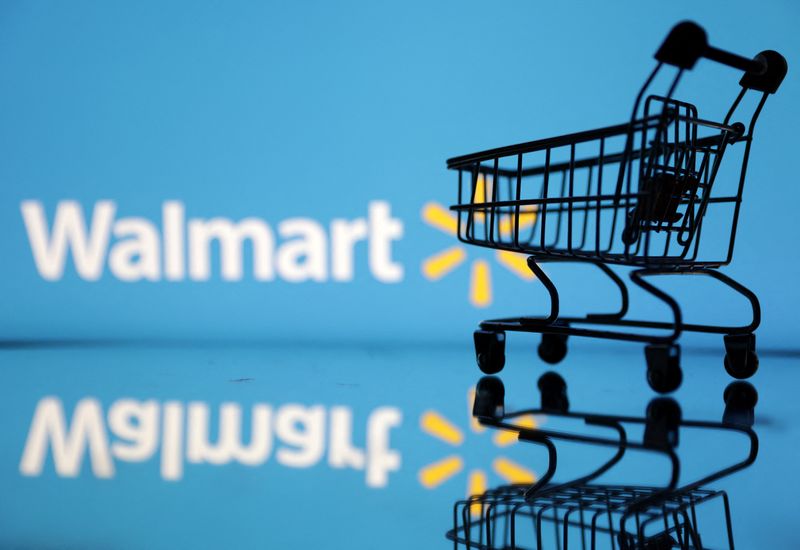By Siddharth Cavale
NEW YORK (Reuters) - Walmart (NYSE:WMT)'s stake in Chinese e-commerce firm JD (NASDAQ:JD).com was once central to its China strategy.
Now it is tearing up that playbook by unloading its entire $3.74 billion stake in one of China's biggest online retailers, in another example of the volatile nature of its relationship with China.
The unshackling from JD.com is emblematic of the broader strategic withdrawal of the world's largest retailer from markets where profitability has proven elusive.
It follows the retailer's exits from several big markets over the past few years, including Japan, Britain, Brazil and Argentina, which industry-watchers have attributed to Walmart's difficulty in competing with nimble local rivals.
When Walmart took its initial investment in JD.com in 2016 it was struggling to scale its own e-commerce platform, Yihaodian, and gain a foothold in China's rapidly growing online shopping market.
At the time, David Cheesewright, then CEO of Walmart International, positioned the $1.5 billion deal as a move to improve Walmart's competitiveness in China's cutthroat retail sector and boost sales in its underperforming physical stores.
The deal, which was one of the biggest investments in a Chinese retailer by a U.S. company, included the opening of a Sam's Club China store on JD.com and access to JD.com's distribution network for same- and next-day deliveries, a joint announcement from the companies said.
The company's reliance on JD.com to drive sales, however, has diminished since the pandemic, when home-bound Chinese consumers gravitated to Sam's Clubs so they could stock up for possible lockdowns and make fewer trips to the store.
This trend has continued even post-pandemic, Walmart executives have said, with memberships at Sam's Club hitting a record high in Walmart's most recent quarter. Sam's Club, which opened its first store in Shenzhen in 1996, is the top warehouse club chain in China. Half of Walmart's China sales come from online channels, the company has said, which include sales from JD.com, JD Daojia and its Sam's Club app.
Walmart on Tuesday said its decision to sell its JD.com stake "allows us to focus on our strong China operations for Walmart China and Sam's Club, and deploy capital towards other priorities."
Some of Walmart's other international priorities include doubling the amount of merchandise it sells in foreign markets to $200 billion in the next four years. The company is also working toward an initial public offering of its digital payments platform PhonePe and Flipkart marketplace in India.
The divestiture of JD.com is also notable as a big first move by Kathryn McLay, who took over as CEO of Walmart's international division last year, and it occurs as U.S.-China trade tensions, coupled with geopolitical uncertainties, have made China a more challenging trade partner.

Several Western firms, including Walmart, are increasingly shifting investments and sourcing away from China to other developing countries, including India, Pakistan and Bangladesh, to improve their supply-chain resilience.
Even as Walmart is selling the JD.com stake, it will maintain a commercial relationship with the retailer, details of which were not immediately disclosed. In contrast, Walmart has used its majority stake in Flipkart to proceed in the direction of an IPO.